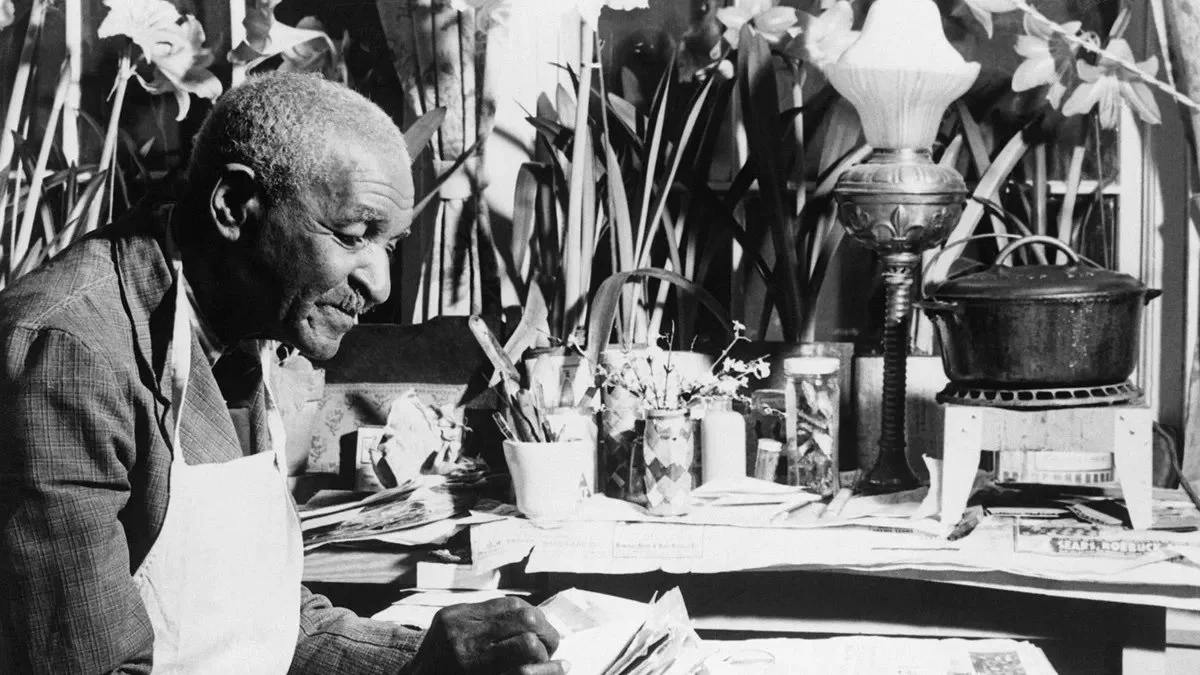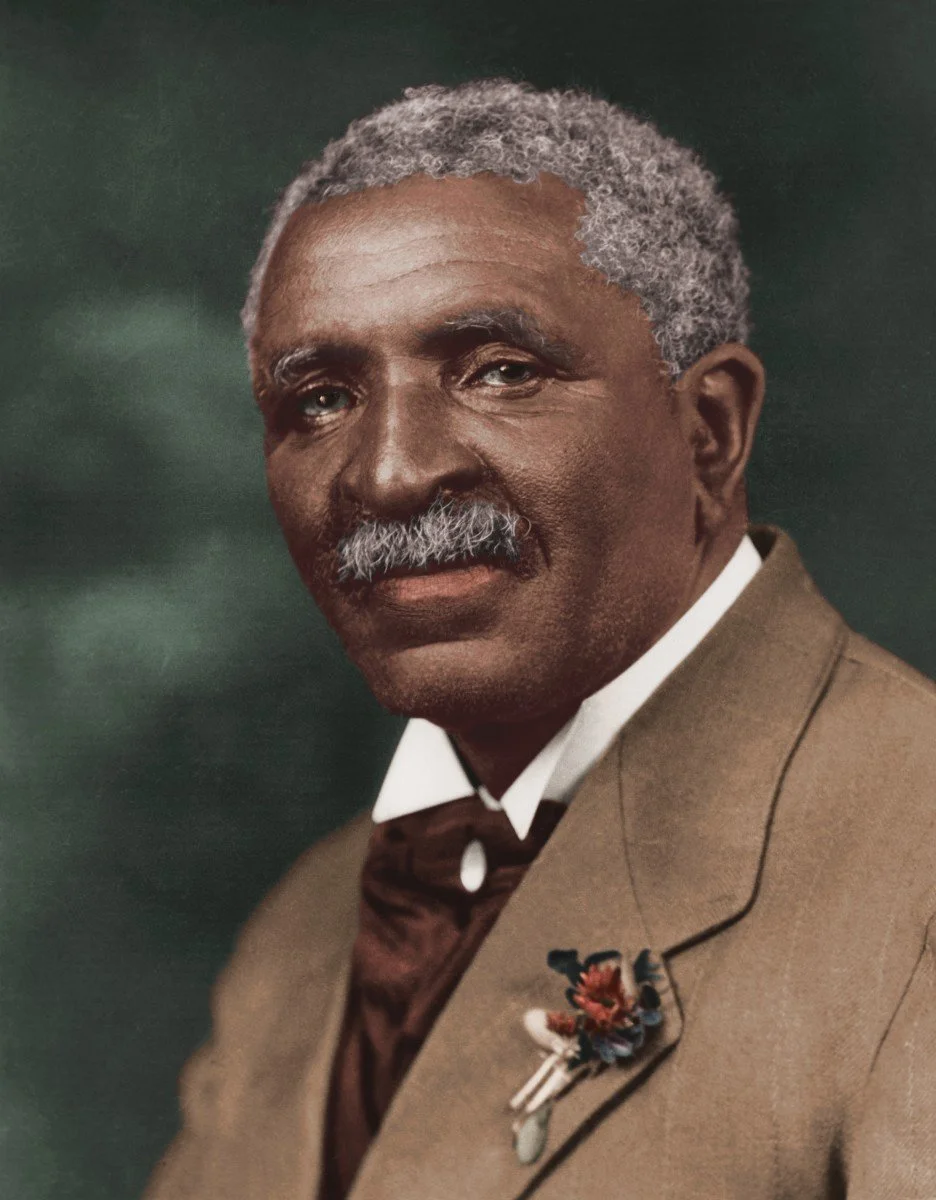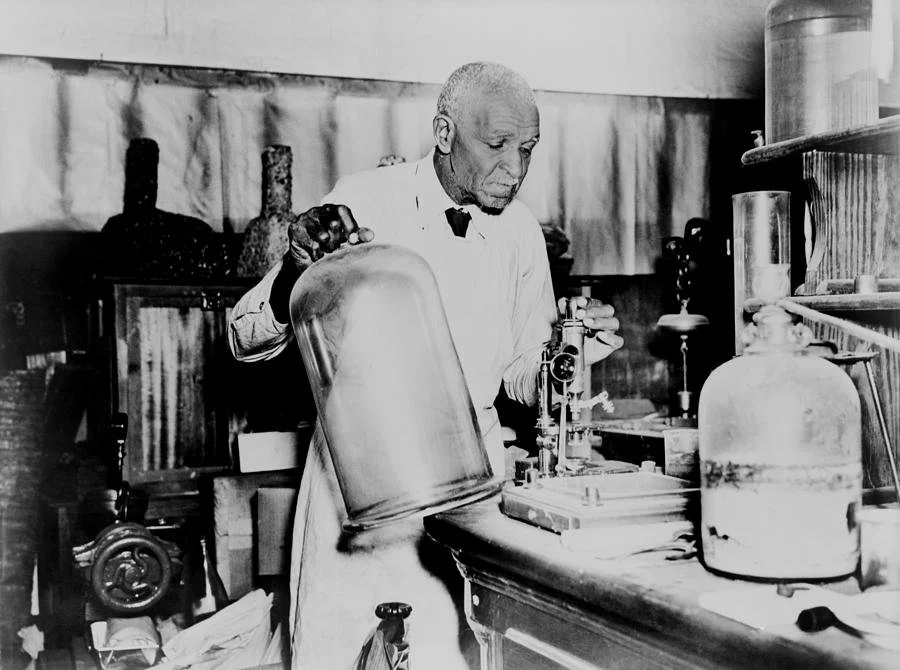George Washington Carver: The Botanist Who Reimagined Agriculture
When we think of George Washington Carver, peanuts often come to mind. But his impact on agriculture, sustainability, and environmental conservation reaches far beyond a single crop. Carver was a visionary scientist, educator, and botanist who championed sustainable farming practices and advocated for a deeper connection between people and the land.
A Life Rooted in Resilience
Born into slavery during the Civil War, Carver overcame unimaginable obstacles to become one of the most respected scientists of his time. He pursued education despite systemic barriers, eventually earning a master’s degree in agricultural science from Iowa State University. His passion for plants and soil health led him to teach at Tuskegee Institute, where he dedicated his life to helping Black farmers improve their livelihoods.
The Power of Sustainable Farming
Carver recognized the dangers of soil depletion caused by continuous cotton farming in the South. He promoted crop rotation—alternating cotton with soil-enriching plants like peanuts, sweet potatoes, and legumes—to restore nutrients to the land. This practice not only improved soil health but also increased food security and economic stability for struggling farmers.
More Than Peanuts
Although he developed over 300 uses for peanuts, Carver never sought to profit from his discoveries. Instead, he believed knowledge should be shared for the betterment of all. His work also extended to sweet potatoes, pecans, and other crops, creating new opportunities for farmers while reducing waste.
A Legacy of Conservation and Stewardship
Beyond agriculture, Carver was an early advocate for environmental conservation. He encouraged composting, natural fertilizers, and the sustainable use of natural resources long before these ideas became mainstream. His philosophy was simple: respect the land, and it will provide for you in return.
Lessons for Today
Carver’s teachings remain relevant today as we face climate change and environmental degradation. His belief in regenerative agriculture and sustainable land management aligns with modern conservation efforts, reminding us that the health of our planet depends on how we treat its resources.
George Washington Carver’s legacy is a testament to the power of curiosity, perseverance, and respect for the natural world. His lessons continue to inspire farmers, scientists, and environmentalists alike, proving that true innovation begins with a deep appreciation for the earth.





